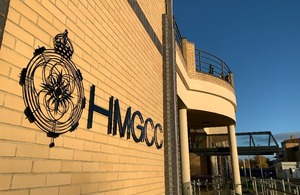Back in the days when I was a young engineer, the UK boasted names such as Plessy, AEI, English Electric and of course GEC, all of whom were globally respected names, employing hundreds of thousands of people.
GEC
By the late 1990s, however, our once strong electronics industry had diminished to such as point that only GEC was left standing, with most of this being sold to foreign competition under Lord Weinstock. In short, lack of leadership, low investment in R&D and a reliance on easy defence contracts all led to the ultimate demise of any significant electronics product manufacture in the UK.
With the rise of OEMs such as Apple, Amazon and Meta the industry has largely moved to a global sourcing model whereby components are designed in the country of brand origin (ie. America) and sourced predominantly from suppliers in China, Taiwan and South Korea. Due to shifts in the tectonic plates of global politics, however, and specifically a rise in tension between the west and China, things are changing.
Supply chains
Last year, for example, G7 leaders meeting in Japan vowed to “reduce excessive dependencies in our critical supply chains”. Washington is determined to claw back advanced chip production from Asia and Beijing is racing to establish its own tech supremacy. What does this new uncertainty mean for the UK and is there an opportunity for a newly formed government, of whatever colour, to develop a bold new strategy to take advantage of this?
Echoing the sentiment of James Dyson’s letter to The Times last year, now is the time for clear action to revive our electronics sector – and not just slogans or catch-phrases.
We need a clear strategy based on picking winners and not simply treading water.
Granted, government backed initiatives such as Innovate UK and the SBRI, which Novocomms has benefited from, provide a welcome injection of funds for R&D, but in the bigger picture, these are mere brush strokes, not landscapes painted on a large canvas.
Whichever government is in place come the Autumn, it needs to take the opportunity of global political insecurity seriously – using it as a catalyst for fundamental change.
Electronics task force
I’d like to see the formation of a UK Electronics Manufacturing task force, headed by the likes of Dyson. This group should be given genuine executive power and a remit to pick world-beating sectors which can re-establish global competitiveness for the UK.
Electronics should certainly be one of a handful of niches, which would likely also include sustainable energy, automotive, life sciences and aerospace.
This plan should also include major investment in our academic institutions that will feed these nascent sectors with the skills they will need.
Above all, it’s about having people within government who really understand the electronics industry, as opposed to well meaning graduates that have studies the arts, politics or economics.
It’s time we got serious about reinventing our industry and start to regain credibility and market share in the global market.
Author
Colin Tucker was the CTO and COO at Orange for its European businesses and Main Board Director on its listing on the FTSE. As founding CEO of 3, the first 3G mobile operator in the UK, Colin developed the role to become the Deputy Chairman of the Hutchison 3G group in Europe. He is Chairman of Novocomms, the fast-growing UK antenna, smart cities and satellite comms specialist.
 Electronics Weekly Electronics Design & Components Tech News
Electronics Weekly Electronics Design & Components Tech News




